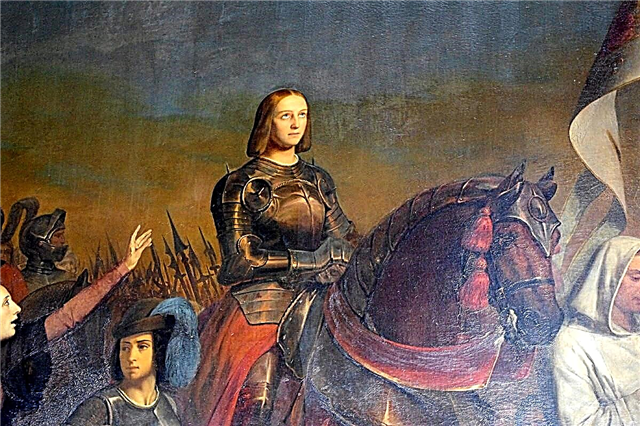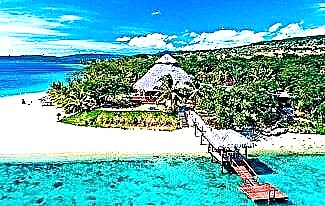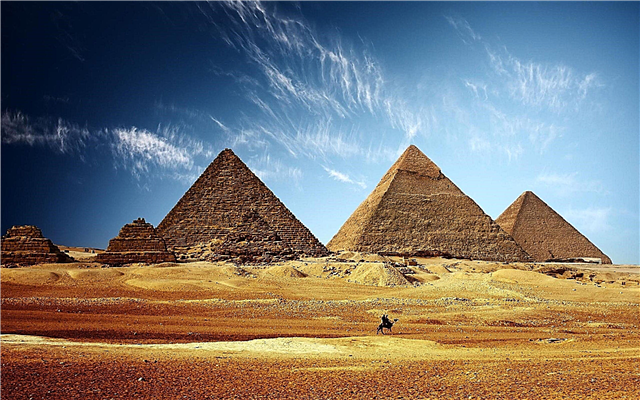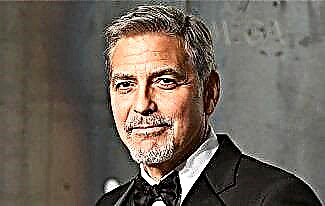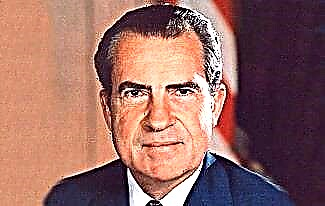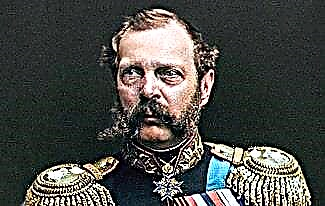For Russian music, Mikhail Ivanovich Glinka (1804 - 1857) was about the same as Pushkin was for literature. Russian music, of course, existed before Glinka, but only after the appearance of his works "Life for the Tsar", "Ruslan and Lyudmila", "Kamarinskaya", songs and romances, music broke out of secular salons and became truly folk. Glinka became the first national Russian composer, and his work influenced a large number of followers. In addition, Glinka, who had a good voice, founded the first vocal school in Russia in St. Petersburg.

The life of MI Glinka can hardly be called easy and carefree. Not experiencing, like many of his fellow workers, serious material hardships, he was very unhappy in his marriage. His wife cheated on him, he cheated on his wife, but according to the then divorce rules, they could not part for a long time. Innovative techniques in Glinka's work were not well received by everyone, and often provoked criticism. To the composer's credit, he did not give up and went his own way, not turning away from it either after deafening successes, as with the opera “A Life for the Tsar”, or after premieres that were close to failure (“Ruslan and Lyudmila”)
1. Glinka's mother, Evgenia Andreevna, came from a very wealthy landowner family, and her father was a landowner of a very, very average hand. Therefore, when Ivan Nikolaevich Glinka decided to marry Evgenia Andreevna, the girl's brothers (their father and mother had died by that time) refused him, not forgetting to mention that the failed young ones are also second cousins. Without thinking twice, the young people conspired to flee. The escape was a success thanks to the dismantled bridge on time. While the chase reached the church, the wedding had already taken place.
2. According to the ancestral legend, Mikhail Glinka was born at the hour when the nightingales were just beginning to sing in the morning - both a good omen and an indication of the future abilities of a newborn. It was on May 20, 1804.
3. Under the care of his grandmother, the boy grew up pampered, and his father affectionately called him “mimosa”. Subsequently, Glinka himself called himself this word.
4. The village of Novospasskoye, in which the Glinki lived, during the Patriotic War of 1812 was one of the centers of the partisan movement. The Glinka themselves were evacuated to Oryol, but their house priest, Father Ivan, was one of the leaders of the partisans. The French once tried to capture the village, but were driven back. Little Misha loved to listen to the stories of the partisans.

5. All family members loved music (my uncle even had his own serf orchestra), but the governess Varvara Fedorovna taught Misha to systematically study music. She was pedantic, but the young musician needed it - he needed to understand that music is work.
6. Mikhail began to receive regular education at the Noble Boarding School - the junior school of the famous Tsarskoye Selo Lyceum. Glinka studied in the same class with Lev Pushkin, the younger brother of Alexander, who at the same time studied at the Lyceum. However, Mikhail stayed in the boarding house for only a year - despite his high status, the conditions in the educational institution were bad, in a year the boy was seriously ill twice and his father decided to transfer him to the St. Petersburg boarding school at the Pedagogical University.
7. In the new boarding house, Glinka found himself under the wing of Wilhelm Küchelbecker, the same one who shot at the Grand Duke Mikhail Pavlovich on Senate Square and tried to shoot at two generals. But that was in 1825, and so far Küchelbecker was listed as a trustworthy one.
8. In general, the passion for music played a role in the fact that the uprising of the Decembrists passed by, as it were, Glinka. He was familiar with many of its participants and, of course, heard some conversations. However, the matter did not go further, and Mikhail successfully escaped the fate of those hanged or exiled to Siberia.

Decembrist revolt
9. Pension Glinka finished second in grades, and at the graduation party made a splash with a magnificent piano playing.
10. The famous song “Don't sing, beauty, with me…” appeared in a rather unusual way. Once Glinka and two Alexandra - Pushkin and Griboyedov - spent the summer at the estate of their friends. Griboyedov once played on the piano a song he had heard during his service in Tiflis. Pushkin immediately composed the words for the melody. And Glinka thought that the music could be made better, and the next day he wrote a new melody.
11. When Glinka wanted to go abroad, his father did not agree - and his son's health was weak, and there was not enough money ... Mikhail invited a doctor he knew, who, after examining the patient, said that he had many dangerous diseases, but the trip to countries with warm climate will heal him without any medicine.
12. While living in Milan, Glinka used to play the operas he had heard at La Scala the night before. Crowds of local residents gathered at the window of the house where the Russian composer lived. And the performance of a serenade composed by Glinka on a theme from the opera Anna Boleil, which took place on the large veranda of the house of a famous Milan lawyer, caused a traffic jam.
13. Climbing Mount Vesuvius in Italy, Glinka managed to get into a real Russian blizzard. We managed to climb only the next day.
14. Glinka's concert in Paris brought together the full Hertz concert hall (one of the largest auditoriums in the French capital) and received rave reviews from the audience and the press.
15. Glinka met his future wife Maria Ivanova when he arrived in St. Petersburg to see his seriously ill brother. The composer did not have time to see his brother, but found a life partner. The wife remained faithful to her husband for only a few years, and then she went all out. The divorce proceedings took away a lot of Glinka's strength and nerves.
16. The theme of the opera “A Life for the Tsar” was suggested to the composer by V. Zhukovsky, the work on this theme - “Dumas” by K. Ryleev - was advised by V. Odoevsky, and the name was invented by the director of the Bolshoi Theater A. Gedeonov, when Nikolai I attended one of the rehearsals.

Scene from the opera "A Life for the Tsar"
17. The idea of "Ruslan and Lyudmila" was also collectively born: the theme was suggested by V. Shakhovsky, the idea was discussed with Pushkin, and the artist Ivan Aivazovsky played a couple of Tatar tunes on the violin.
18. It was Glinka who, in modern terms, casting singers and singers for the imperial chapel, which he directed, discovered the talent of the outstanding opera singer and composer G. Gulak-Artemovsky.
19. M. Glinka put to music the poem "I remember a wonderful moment ...". Pushkin dedicated it to Anna Kern, and the composer to Ekaterina Kern, daughter of Anna Petrovna, with whom he was in love. Glinka and Catherine Kern were supposed to have a child, but outside of marriage Catherine did not want to give birth to him, and the divorce continued to drag on.
20. The great composer died in Berlin. Glinka caught a cold while returning from a concert at which his works were performed. The cold turned out to be fatal. First, the composer was buried in Berlin, but then his remains were reburied in the Alexander Nevsky Lavra.

